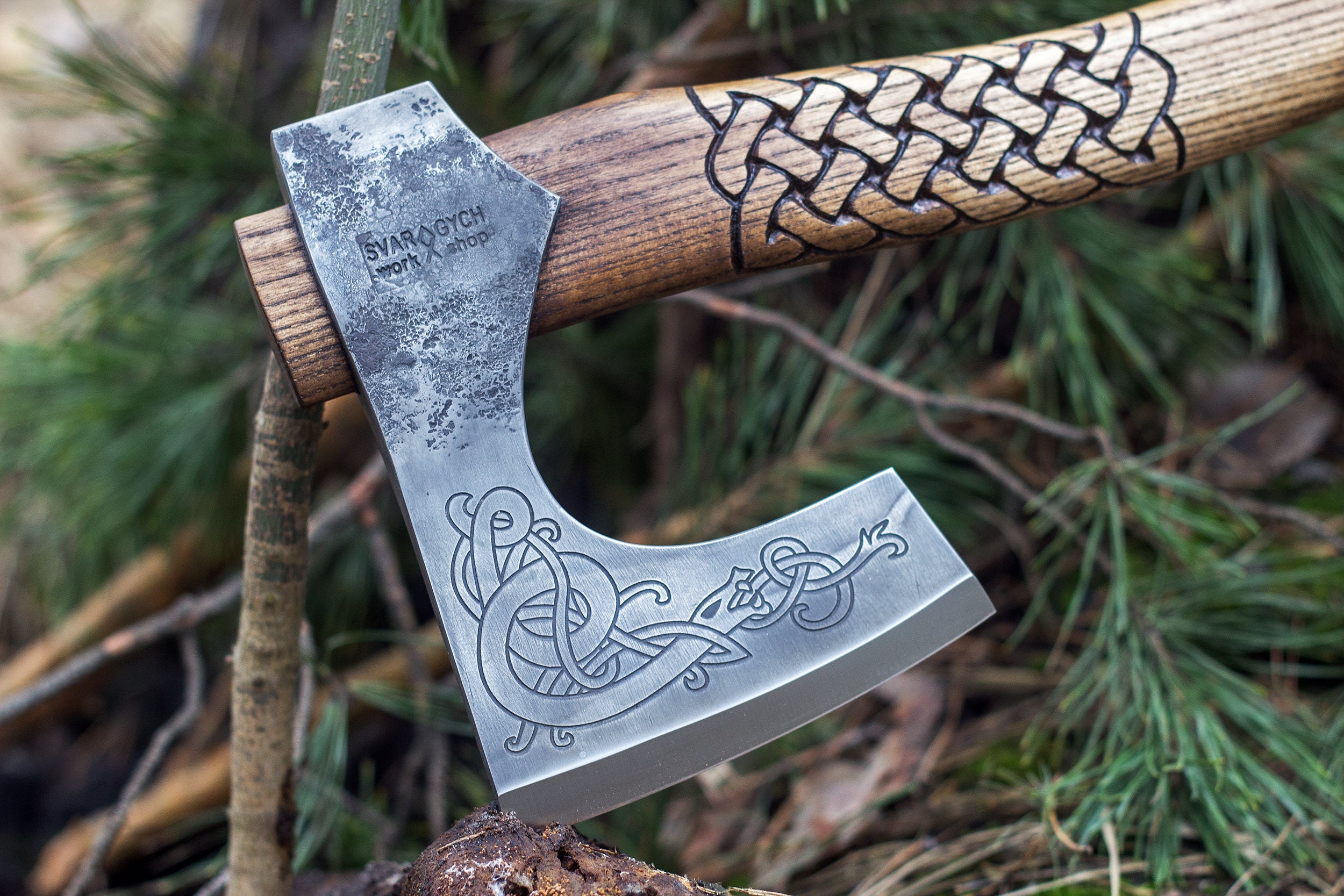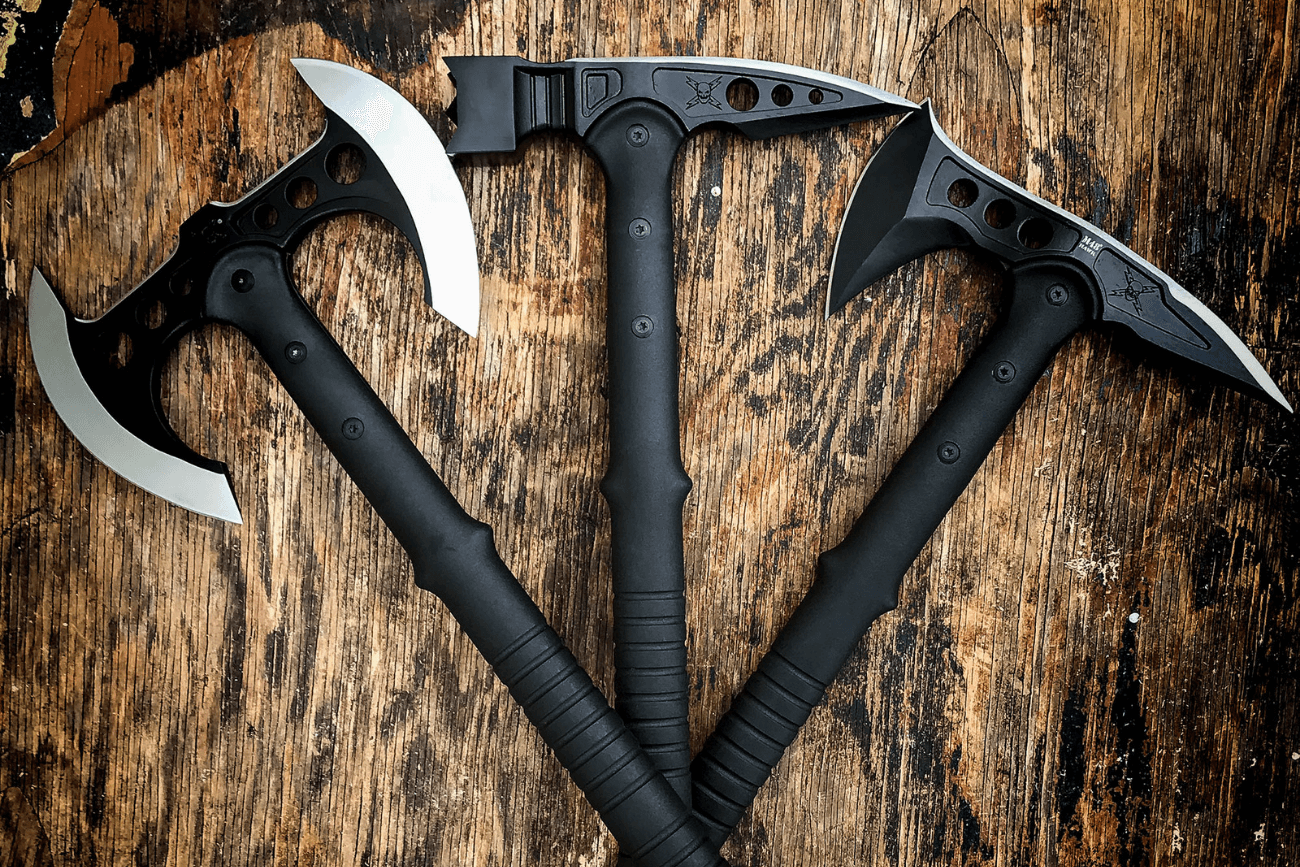Table Of Content

They are usually built tough and durable, with wooden handles made of superior-quality wood like hickory. A hatchet is a general all-purpose axe, and is the kind of axe that most people own for light jobs in the yard. These can range enormously in price, from just a few dollars to $100+. They are relatively small compared to some other axes, with a chunky handle most commonly made from hickory wood.
Viking hoodie new hooded creative design hoodie gift hoodie
The Best Felling Axe for Cutting Small and Medium-Size Trees - Thomas Insights
The Best Felling Axe for Cutting Small and Medium-Size Trees.
Posted: Sun, 02 Jul 2023 07:00:00 GMT [source]
The hand axe was a pear-shaped and roughly chipped stone tool brought to an even point, with a broad handle. The hand axe was probably used for many different tasks, everything from butchering animals to digging up tubers. From chopping wood to warding off attackers, these axes were designed to be multi-functional. And in today’s world, where we value efficiency and practicality, that kind of versatility is still highly sought after. The design of the Viking axe is both simple and elegant, with a long handle and a wide, curved blade that is designed to deliver a powerful blow.
Broad axe

Make sure that you maintain the temperature for this part of the process. Once the steel is properly heated, you can take it off the forge and start bending it. However, there’s no need to worry if the ends are off a little since you can always fix it later on in the process, when you’re shaping it. Once you try this method a couple of times, you’ll know you’ve reached the right temperature just by the color alone. If you want to ensure you achieve the ideal temperature your first time around, then purchase an infrared thermometer.
Shepherd’s axe
These will usually be symmetrical from the front, but one blade will blunt while the other is sharp. The sharp side would be used to chop wood or fell trees, and the blunt side used to split the wood into small pieces of kindling ready for the fire. These types of axes are not in mainstream production anymore and are now only used by lumberjacks.
Types of Axes: Cutting-Edge Axe Head Designs + Photos
Let’s explore the different types of Viking axes and how they were used in battle and everyday life. The versatility of these weapons made them an indispensable part of Norse culture, and they continue to fascinate and inspire people today. In addition to their practical uses, Viking axes also held great symbolic value. They were often adorned with intricate carvings and used in religious ceremonies, where they were believed to have the power to protect against evil spirits.

Logo design for wood company.Unique shape, minimal industrial vintage design. Woodworking tool like an old style axe which was used to actually hewn the lumber for building in the 19th century or before as an idea. The product is natural beeswax based nourishing cream that people and protects outdoor knives and axes and their leather sheaths.It s more of an outdoor brand. As we know, the principle of the axe is based on the third-class lever. The length of the axe acts as an effort distance which multiplies the force applied.
They’re crafted into a very sharp cutting device that will allow you to hack into or out of a plane in the event of a crash. Check out our guide to broad axes and learn how the axes works and what it’s used for. The adze was first used back in the Stone Age for carving wood and farming. The blades are very sharp, making them popular with carpenters, even today for leveling, trimming, and shaping wood. Hand adzes have a short handle and are swung with one hand while foot adzes are longer and require both hands.
It was an all-purpose axe, made to perform everyday tasks like chopping firewood. This is a medium-size axe that can be used with both hands or just one for easier jobs. For size comparison, a Hudson Bay axe falls between a hatchet and a felling axe. While a typical axe handle is made from a handful of materials, such as wood, fiberglass, steel, or plastic, most quality axe heads are forged from the strength of steel. Hewing axes – also called broadaxes – are unique in that they are single-bevel axes – that is, only one side on the edge actually makes a cut.
Different Types of Axe: A Comprehensive Guide (2024 Update)
If you don’t then this will be another important skill that you’ll learn. Though it is true that many Viking axes were large, you’d be wrong to assume they were brutish and cumbersome. Well-made Viking axes were exceptionally well balanced and could weigh less than two pounds, making them light to carry during battle, and swift to use.
This makes them perfect for hewing logs into square beams, and that is how it was done in olden times before the invention of mechanized saw. A pulaski axe, sometimes also called a fireman’s axe is designed for fighting fires. It was designed in 1911 by a man named Ed Pulaski, originally for use by the United States Forest Service. These are large axes, with handles ranging from 30 to 36 inches and axe heads weighing starting from 3 lbs and going up to 5 and even 6 pounds. These axes need to be hefty and with long handles so that the user can put a lot of force into his (or her) swing.
Modern carpenter’s axes also have the addition of a groove in them, which can be used to remove nails from wood. They also typically have a notch on the handle, which allows for a better grip so the user can have more precise control. A splitting maul, a powerful and heavy axe designed specifically for splitting wood, is an essential tool for homeowners, firewood enthusiasts, and professional loggers. Weighing between 6 and 8 pounds, the splitting maul provides maximum force when swung. Its longer handle offers leverage and allows for a two-handed grip, enabling better control and generating more power during use. The splitting maul’s versatility and effectiveness make it an indispensable tool for anyone involved in wood-related tasks.










